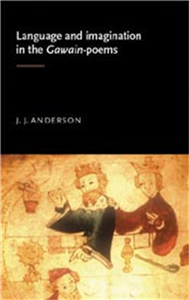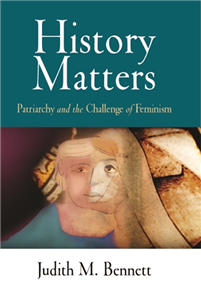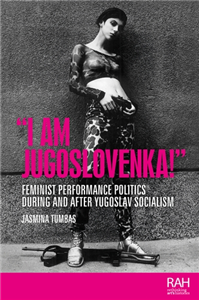Your Search Results
-
 Trusted Partner
Trusted Partner
-
-
Promoted ContentThe ArtsFebruary 2019
Alain Robbe-Grillet
by John Phillips
Placing Robbe-Grillet's filmic oeuvre in the related contexts of both his novelistic work and the different historical and cultural periods in which his films were made, from the early 1960s to the present, the book traces lines of influence and continuity throughout his work, which is shown to exhibit a consistent preoccupation with an identifiable body of themes, motifs and structures. Close readings of all the films are skilfully combined with a thematic approach, ranging across the entire filmic corpus. The book also contains chapters on cinematography and technique. Ultimately, this lucid, comprehensive and fascinating study shows Robbe-Grillet's contribution to the evolution of the cinematic art both in France and internationally to have been considerably more important than previously acknowledged.
-
Promoted Content1975
Pouvez-vous Français?
Programmierte Übung zum Verlernen typisch deutscher Französischfehler. (Sprachbücher)
by Soussan, Jacques
-
 Trusted Partner
1989
Trusted Partner
1989C'est la vie!
Impressionen - Frankreich en passant
by Herausgegeben von Franck, Alice; Herausgegeben von Vesper, Guntram
-
 Trusted Partner
1997
Trusted Partner
1997Rendez-vous mit der verlorenen Zeit
Die Jahre mit meiner Mutter Simone Signoret und mit Yves Montand
by Allégret, Cathérine / Französisch Hermes-de Chedjou, Corinna
-
 Trusted Partner
April 1996
Trusted Partner
April 1996C'est tout. Das ist alles
by Marguerite Duras
Marguerite Duras wurde am 4. April 1914 in der ehemaligen französischen Kolonie Gia Dinh, dem heutigen Vietnam als Marguerite Donnadieu geboren und starb am 3. März 1996 in Paris. Sie besuchte das Lycée Français in Saigon und machte 1931 Abitur. Ein Jahr später siedelte die Familie nach Paris um, wo sie an der Rechtswissenschaftlichen Fakultät der Universität Paris und an der École des Sciences Politiques studierte. Von 1935 bis 1941 arbeitete sie als Sekretärin im Ministère des Colonies. 1939 heiratete sie Robert Antelme. Beide waren ab 1940 in der Résistance aktiv. Antelme wurde später ins Konzentrationslager Dachau deportiert. 1943 erschien ihr Debütroman Les Impudents (Die Schamlosen) unter dem Pseudonym Marguerite Duras, welchem keine besondere Aufmerksamkeit in der Öffentlichkeit zuteil kam. Mit Un Barrage contre le Pacifique (Heiße Küste), das 1950 erschien, hatte Duras größeren Erfolg. Sie schrieb nicht nur Romane, sondern verfasste auch Theaterstücke und trat als Filmregisseurin in Erscheinung.
-
 Trusted Partner
Trusted Partner
-
 Trusted Partner
September 1984
Trusted Partner
September 1984L'Etat c'est moi
by Herbert Achternbusch
Derjenige, von dem der Ausspruch stammt, der diesem Buch den Titel gab, kommt im Text nicht vor; auch kein vergleichbarer. Im Gegenteil: Die Rede ist von Dialogpartnern, die alle von ihrer Umwelt, ihrer Vergangenheit, ihren Hoffnungen und Wünschen berichten, weniger um sich gegenseitig zu verständigen, als vielmehr um die Situationen, in denen sie leben müssen, zu verdeutlichen. In dieser Rollenprosa wird bewußt keine Rücksicht auf die Erfordernisse der traditionellen Erzählung genommen. Realistische Details aus dem politischen Tagesgeschehen stehen neben der Geschichte des Mönchs Absalom; Drehbuchtexte sind in monologisch gehaltenen Passagen eingebettet. »L᾿Etat c᾿est moi« – das ist mehr als nur ein ironisches Zitat: Es ist eine Provokation derjenigen, die durch die Institutionen (der literarischen Gattungen ebenso wie der sozialen Ordnungen) Zwang ausüben; und es in einer Aufforderung an den Leser, das überkommene Denken, der Staat sind wir (also die anderen), in Frage zu stellen.
-
 Trusted Partner
Trusted Partner
-
 Trusted Partner
April 1989
Trusted Partner
April 1989Quis iudicabit?
Das konfessionell gebundene Staatsamt eines katholischen Universitätstheologen und die beamtenrechtliche Fürsorgepflicht des Staates im Bereich der Grundrechte.
by Schachten, Winfried
-
 Trusted Partner
Trusted Partner
-
 Trusted Partner
March 2016
Trusted Partner
March 2016"L'Algérie, c'est la France"
Die französische Nordafrikapolitik zwischen Anspruch und Realität (1946–1962)
by Katzer, Valentin
-
 Trusted Partner
December 2008
Trusted Partner
December 2008Dreißig Gespräche
by Max Dax
Max Dax, seit 2006 Chefredakteur des Musikmagazins Spex, gab zuvor die Interviewzeitschrift Alert heraus. Dabei entstanden gesprochene (Selbst-)Porträts von (Techno-)Musikern, Künstlern, Regisseuren und Schriftstellern und ganz nebenbei eine Zwischenbilanz der Gegenwartskultur. Zu Wort kommen in dieser Auswahl: Aphex Twin, Blixa Bargeld, David Bowie, Vashti Bunyan, Diedrich Diederichsen, DJ Hell, Kim Gordon, Juliette Gréco, Charlie Haden, Herbie Hancock, Lee Hazelwood, Jenny Holzer, Dennis Hopper, Jörg Immendorff, Lemmy Kilmister, Martin Kippenberger, Alexander Kluge, Claude Lanzmann, Arto Lindsay, Marcel Marceau, Johnny Marr, Thomas Ruff, Helge Schneider, Mark E. Smith, Bernhard Sumner, Mayo Thompson, Caetano Veloso, Roger Waters und Townes van Zandt.
-
 Trusted Partner
Literature & Literary StudiesJanuary 2021
Trusted Partner
Literature & Literary StudiesJanuary 2021Language and imagination in the Gawain poems
by J. Anderson
This major new literary study offers a fresh view of the significance of the famous group of fourteenth-century poems, 'Pearl', 'Cleanness', 'Patience' and 'Sir Gawain and the Green Knight'. It is a comprehensive study which puts the poems themselves firmly at its centre, though it is always alert to relevant aspects of their literary and cultural context. John Anderson builds his discussions of the poems' ideas on an examination of the anonymous poet's superb Shakespeare-like language. He finds that the great fourteenth-century struggle, between religious and secular forces for control of men's minds, underlies all the poems. This title is the first in the new Manchester Medieval Literature series, which makes readability a priority. Accordingly, despite its wide range of reference and the radicalism of some of its leading ideas, this book is written in a jargon-free style designed to appeal to specialist, non-specialist and student readers alike.
-
 Trusted Partner
Literary studies: classical, early & medievalMarch 2005
Trusted Partner
Literary studies: classical, early & medievalMarch 2005Language and imagination in the Gawain poems
by J. J. Anderson
This major new literary study offers a fresh view of the significance of the famous group of fourteenth-century poems, 'Pearl', 'Cleanness', 'Patience' and 'Sir Gawain and the Green Knight'. It is a comprehensive study which puts the poems themselves firmly at its centre, though it is always alert to relevant aspects of their literary and cultural context. John Anderson builds his discussions of the poems' ideas on an examination of the anonymous poet's superb Shakespeare-like language. He finds that the great fourteenth-century struggle, between religious and secular forces for control of men's minds, underlies all the poems. This title is the first in the new Manchester Medieval Literature series, which makes readability a priority. Accordingly, despite its wide range of reference and the radicalism of some of its leading ideas, this book is written in a jargon-free style designed to appeal to specialist, non-specialist and student readers alike.
-
 Trusted Partner
Humanities & Social SciencesAugust 2006
Trusted Partner
Humanities & Social SciencesAugust 2006History matters
Patriarchy and the challenge of Feminism
by Judith Bennett
Written for everyone interested in women's and gender history, History matters reaffirms the importance to feminist theory and activism of long-term historical perspectives. Judith M. Bennett takes as her central problem the growing chasm between feminism and history which, although closely allied in the 1970s, have now moved away from one another. Seeking to narrow this gap, Bennett proposes that feminist historians turn their attention to the intellectual challenges posed by the persistence of patriarchy. She posits a 'patriarchal equilibrium' whereby, despite many changes in women's experiences over past centuries, women's status vis-à-vis men has remained remarkably unchanged. Bennett argues that the theoretical challenge posed by this 'patriarchal equilibrium' will be best met by long-term historical perspectives that reach back well before the modern era. A new manifesto, History matters engages forthrightly with the challenges faced by feminist historians today. It argues for the radical potential of a history that is focused on feminist issues, aware of the distant past, attentive to continuities over time, and alert to the workings of patriarchal power. ;
-
 Trusted Partner
2024
Trusted Partner
2024High-functioning Depression
The overlooked condition. An educational book
by Michelle Hildebrandt
The image many people have of depression is devastating - a chronic condition that leaves not only the sufferer but also their loved ones at a loss. Unfortunately, psychotherapies often focus on deficits rather than individual strengths and resources. Although this makes patients feel understood, there is a risk that they will become stuck in the role of victim. But what about those who seem to be functioning normally, those who masterfully hide their depression behind a smile? High-functioning depression" is often overlooked because people affected by it have good coping strategies to deal with everyday life. In this groundbreaking book, Dr Michelle Hildebrandt, a specialist in psychiatry and psychotherapy, shows how high-functioning depression can be recognised and how resource-oriented therapy can help not only those affected, but also other people with depression and their relatives. This book broadens the picture of depression and creates a space of hope.
-
 Trusted Partner
The ArtsFebruary 2022
Trusted Partner
The ArtsFebruary 2022"I am Jugoslovenka!"
Feminist performance politics during and after Yugoslav Socialism
by Jasmina Tumbas, Amelia Jones, Marsha Meskimmon
"I am Jugoslovenka" argues that queer-feminist artistic and political resistance were paradoxically enabled by socialist Yugoslavia's unique history of patriarchy and women's emancipation. Spanning performance and conceptual art, video works, film and pop music, lesbian activism and press photos of female snipers in the Yugoslav wars, the book analyses feminist resistance in a range of performative actions that manifest the radical embodiment of Yugoslavia's anti-fascist, transnational and feminist legacies. It covers celebrated and lesser-known artists from the 1970s to today, including Marina Abramovic, Sanja Ivekovic, Vlasta Delimar, Tanja Ostojic, Selma Selman and Helena Janecic, along with music legends Lepa Brena and Esma Redzepova. "I am Jugoslovenka" tells a unique story of women's resistance through the intersection of feminism, socialism and nationalism in East European visual culture.
-
 Trusted Partner
Film theory & criticismFebruary 2014
Trusted Partner
Film theory & criticismFebruary 2014The Encyclopedia of British Film
Fourth edition
by Edited by Brian McFarlane
With well over 6,300 articles, including over 500 new entries, this fourth edition of The Encyclopedia of British Film is a fully updated invaluable reference guide to the British film industry. It is the most authoritative volume yet, stretching from the inception of the industry to the present day, with detailed listings of the producers, directors, actors and studios behind a century or so of great British cinema. Brian McFarlane's meticulously researched guide is the definitive companion for anyone interested in the world of film. Previous editions have sold many thousands of copies and this fourth edition will be an essential work of reference for enthusiasts interested in the history of British cinema, and for universities and libraries.


























